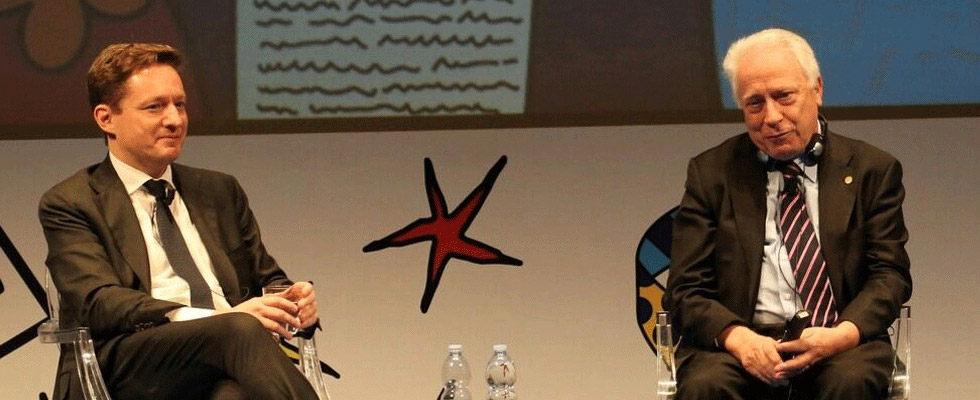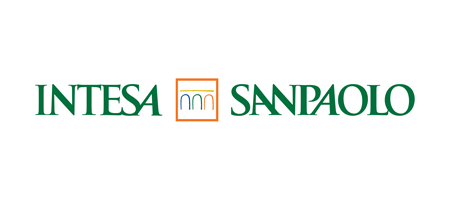One of the Osservatorio Permanente Giovani-Editori’s many noteworthy meetings was held in Siena’s Teatro dei Rozzi to commemorate the fourth edition of our ‘Young Factor’ initiative for the 2017/18 academic year and was attended by 400 students who were themselves enrolled in the initiative.
This conference continued the program started years ago by the Osservatorio to tackle yet another social and civil challenge, the lack of economic and financial education offered to Italian students, with the help of Intesa Sanpaolo, Banca Monte dei Paschi Siena, UniCredit and more recently UBI Banca, but this year we had the exceptional pleasure of welcoming Carlos Da Silva Costa (Governor of the Bank of Portugal). In previous iterations of this inaugural meeting, other speakers have included the Governor of the Bank of Italy Ignazio Visco, the previous head of the European Central Bank Jean-Claude Trichet, the Governor of the German Bundesbank Jens Weidmann, the Governor of the Netherlands Central Bank Klass Knot, the Governor of the Bank of Spain Luis M. Linde, the Governor of the Bank of France Francois Villeroy de Galhau, the Governor of the Bank of Austria Ewald Nowotny and the Governor of Belgium’s central bank Jan Smets. ‘Young Factor’ itself is currently the leading economic and financial literacy program in Italy by the number of high school students enrolled. A relatively new project, but one that has shown excellent growth and success.
“Ignorance costs,” said the president of the Osservatorio Permanente Giovani-Editori, Andrea Ceccherini, during his introductory remarks, “And financial and economic ignorance costs dearly. We at the Osservatorio believe that where there is greater ignorance there is a stronger obligation to educate. ‘Young Factor’ was launched with this in mind, to promote a wide-spread program of economic and financial education in Italian high school. Already more than half a million Italians are enrolled in the program and this gives us both faith and courage. A sign,” added Ceccherini, “that shows that there is a generation among us that has not resigned itself to leaving Italy behind, but is instead pulling their weight to help it advance.”
This conference, which boasted Paolo Giacomin (Director of the Quotidiano Nazionale) as its moderator saw the Governor of the Bank of Portugal fielding questions from Giacomin but especially from the students, who grilled him on topics as diverse as Europe, the Euro, quantitative easing, the recent financial crisis, the outward image projected by Italy and Italians to other European states, and most importantly the need for financial and economic education for younger generations.
The Governor of the Portuguese central bank turned towards the 400 students from all over Italy present in the theatre and opened his speech by saying:
“I am very happy to be standing here with a generation of youngsters that are at the beginning of their lives. These youngsters are on the threshold of a transition, where they will be asked to make important choices and lay the groundwork for a new Europe. In this regard, initiatives like that of the Osservatorio’s are particularly useful and important.”
“Europe,” continued the Governor, “has a key word upon which it should centre itself: together. If we shrewdly combine solidarity and responsibility we can realistically construct the bedrock for a healthy Europe. It’s by combining these two things that we can best confront problems, yet if just one is missing we will achieve nothing. Keeping these two things together constitutes remaining responsible for both ourselves and others and remaining in solidarity with each other so that we are unified behind a common venture. We must understand that it’s imperative that we think together, and that we find a balance between consumption and investment. Just as when one’s skiing and makes sure their weight is evenly distributed across the skis, so one must balance investment and consumption within the economy so as to reap benefits. First of all, we must focus on investments, which generate profit and the possibility of reinvesting, but this must be then balanced with consumption.”
After Ceccherini’s opening speech, the Managing Director of Banca Monte dei Pasci Siena (one of the 4 sponsors of ‘Young Factor) Marco Morelli gave a speech. “The banks,” said Morelli, “are the real drive belt of the economy. This is an initiative in which bankers and those in positions of responsibility within the banking system put themselves at the service of those who, like the Osservatorio and Andrea Ceccherini, have important ideas, and at the service of the many young people who in the next few years will be those who will have to try to drive the system forward in terms of planning”.



